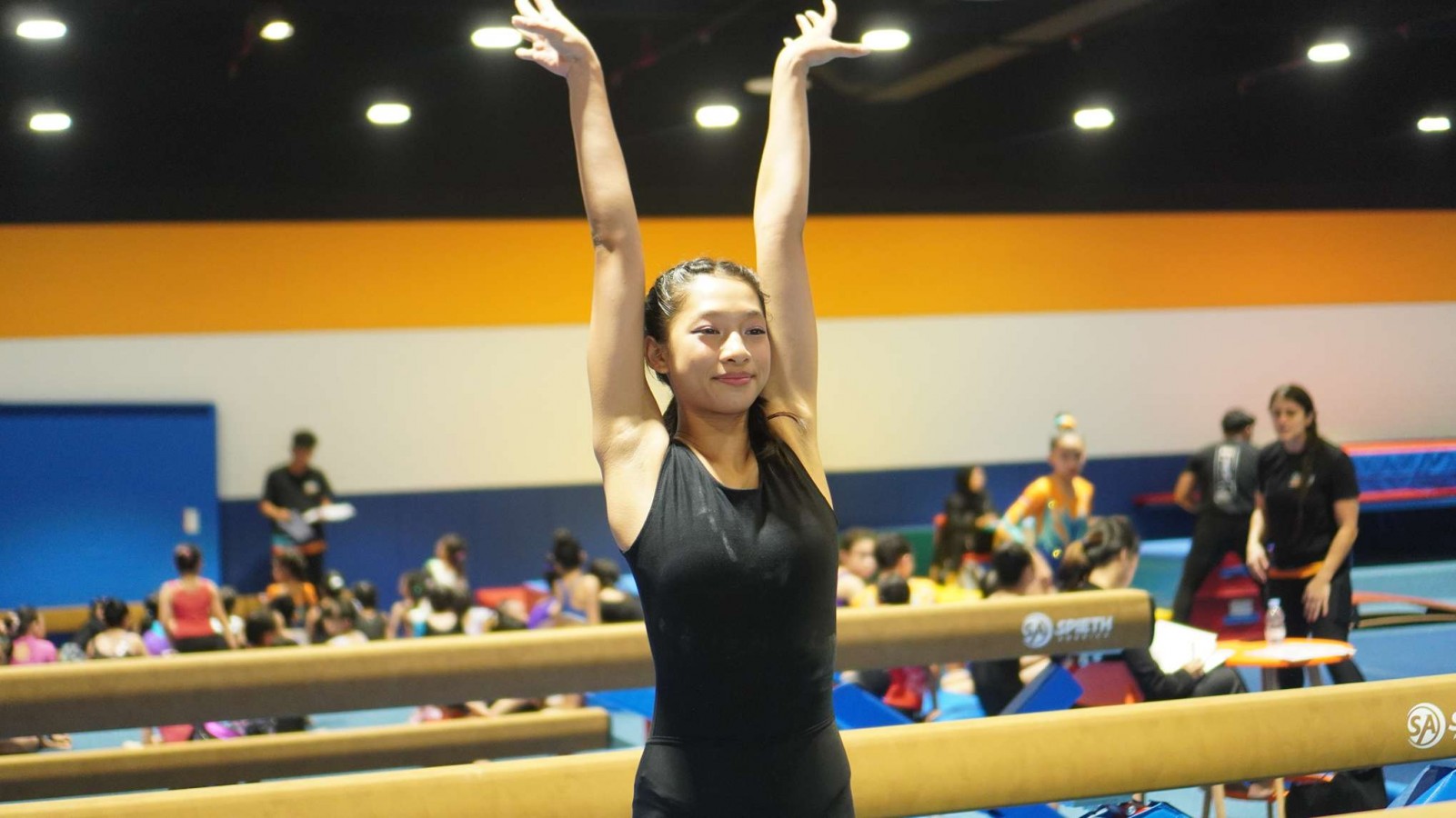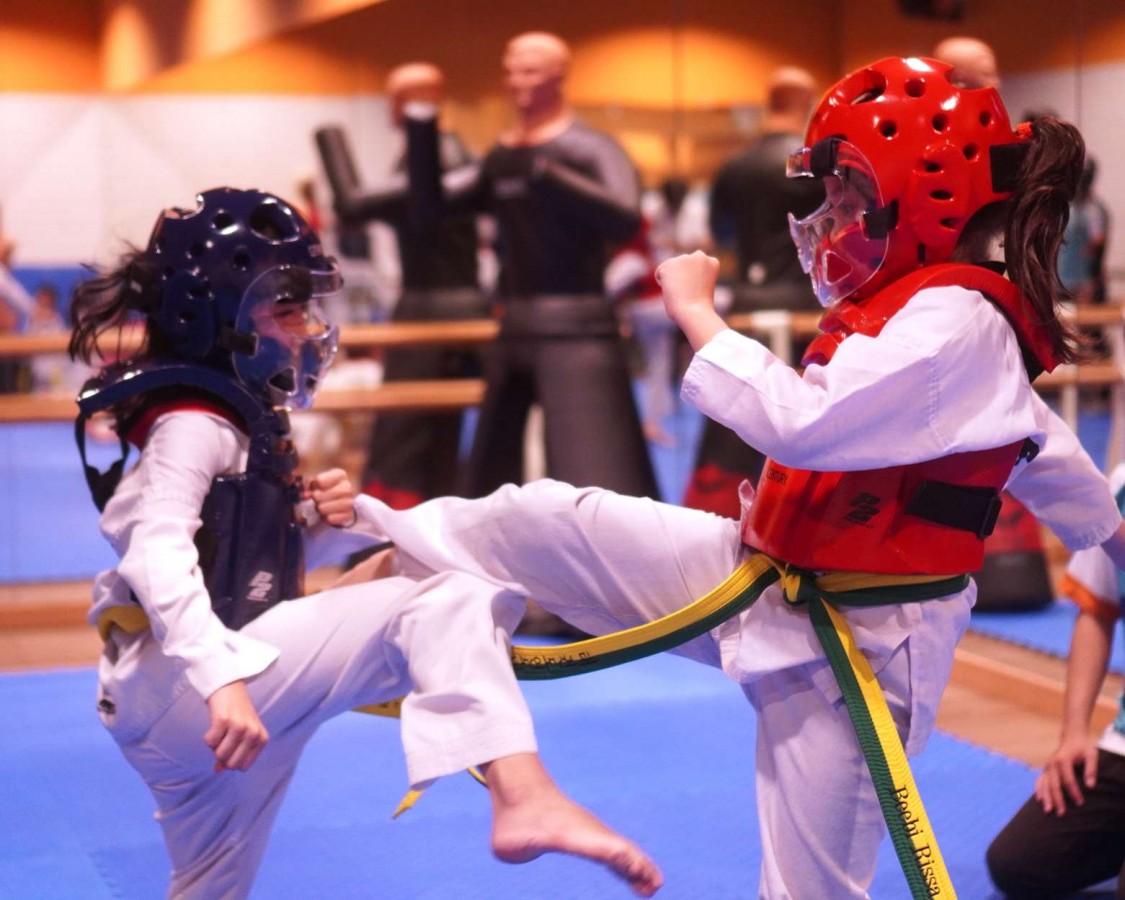Taekwondo for Kids: Is It Good for Kids to Learn Taekwondo?

Taekwondo, a Korean martial art known for its emphasis on high, fast kicks, and dynamic movements, has gained popularity worldwide. Many parents consider enrolling their children in taekwondo classes, drawn by the potential benefits for both physical and mental development.
This article aims to provide comprehensive information on Taekwondo for kids, addressing safety concerns, highlighting the benefits, discussing the suitable age to start, and offering insights into what parents can expect from a Taekwondo class.
Is Taekwondo Safe for Kids?
Safety is a paramount concern for parents considering any physical activity for their children. Fortunately, Taekwondo is generally considered a safe martial art for kids when taught by qualified instructors in a controlled environment.
In reputable Taekwondo schools, instructors prioritize safety, ensuring that students learn proper techniques and adhere to safety protocols during training.
The controlled and disciplined nature of Taekwondo classes helps minimize the risk of injuries. Protective gear, such as helmets, gloves, and shin guards, is often used during sparring sessions to provide an additional layer of safety. Parents can further enhance their child's safety by choosing a certified Taekwondo school with experienced instructors like Rockstar Academy.
Benefits of Taekwondo for Kids
Attending Taekwondo holds numerous benefits, particularly for children. Beyond the physical aspects of improved fitness, strength, and coordination, Taekwondo fosters valuable life skills. Here are several benefits of taekwondo for kids:
1. Physical Fitness
Taekwondo is a physically demanding martial art that engages various muscle groups, promoting overall fitness. Through a combination of kicks, punches, and dynamic movements, children develop strength, agility, and flexibility. The cardiovascular nature of Taekwondo training contributes to improved endurance and stamina.
2. Motor Skills and Cognitive Development
Taekwondo requires precise and controlled movements, which are essential for the development of fine and gross motor skills in children. The repetition of kicks, blocks, and strikes hones coordination and balance, laying a foundation for better control over their bodies.
Acquiring intricate patterns also stimulates the growth of neurons, enhancing the concentration and memory of children. Research indicates a notable enhancement in academic performance among children engaged in Taekwondo, attributing it to the heightened brain activity and improved functional connectivity resulting from learning complex patterns.
Moreover, adolescents diagnosed with ADHD who practice Taekwondo demonstrated elevated levels of cognitive functioning compared to their non-practicing counterparts, as revealed by a separate study.
3. Discipline and Focus
Central to Taekwondo is the cultivation of discipline and focus. Children will learn to follow instructions, adhere to a structured training routine, and concentrate on the task at hand. These skills not only benefit them in martial arts but also carry over to other aspects of life, such as schoolwork and daily responsibilities.
4. Confidence Building
As children progress through the ranks and achieve higher belts, they experience a sense of accomplishment that boosts their self-esteem. The mastery of new techniques and the ability to perform complex forms instill confidence in their abilities, encouraging a positive self-image.
5. Respect and Courtesy
Taekwondo places a strong emphasis on respect, both for instructors and fellow practitioners. Children learn to bow as a sign of respect, address their instructors with proper titles, and treat their training partners courteously. These lessons in respect and courtesy contribute to the development of good manners and social skills.
6. Self-Control and Emotional Regulation
The controlled environment of a Taekwondo class teaches children the importance of self-control. They learn to manage their impulses, emotions, and reactions, fostering emotional regulation. This skill becomes valuable not only in martial arts sparring but also in dealing with challenges and conflicts outside the training setting.
7.Goal Setting and Perseverance
The belt system in Taekwondo symbolizes a student's progress and serves as tangible goals for children to work towards. Setting and achieving these goals instills a sense of perseverance. Children learn that consistent effort and dedication lead to success, a valuable lesson that can be applied to academic and personal pursuits.
8. Stress Relief
Engaging in physical activities, such as Taekwondo, provides an effective outlet for stress and pent-up energy. The structured nature of the classes allows children to release tension, promoting mental well-being and emotional balance.
What Age Can Kids Start Taekwondo?
Taekwondo is suitable for a wide range of age groups, and many schools offer specialized classes for children. While children as young as three or four can start with basic movements and exercises, it's essential to consider the child's individual readiness and attention span. Some kids may be ready for structured martial arts classes around the age of five or six.
Taekwondo classes for young children often focus on fundamental movements, basic kicks, and simple forms. Instructors tailor their approach to the developmental stage of the child, ensuring that classes are engaging and age-appropriate. As children progress, the complexity of techniques and training intensifies.
What Parents Can Expect When Their Child Attends a Taekwondo Class
Attending a Taekwondo class can be an enriching experience for both children and their parents. Here's what parents can expect when their child becomes a part of a Taekwondo class:
A. Structured Environment
Taekwondo classes are well-organized and follow a structured routine. Parents can expect their child to engage in a series of activities, including warm-up exercises, skill drills, forms practice, and cool-down activities. The structured nature of the class helps children understand the importance of discipline and routine.
B. Skill Progression and Belt System
Taekwondo employs a belt system to signify a student's level of expertise. Parents can anticipate their child progressing through different belt levels as they master new techniques and demonstrate proficiency. This system provides a tangible and motivating way for children to track their progress.
C. Focus on Character Development
In addition to physical skills, Taekwondo places a strong emphasis on character development. Parents can expect their child to learn and practice values such as respect, courtesy, integrity, perseverance, and self-control. These values are woven into the fabric of Taekwondo training and contribute to the overall growth of the child.
D. Safe and Controlled Environment
Taekwondo schools prioritize safety, and parents can rest assured that their child is participating in a controlled and supervised environment. Instructors are trained to teach proper techniques, and protective gear is often used during sparring sessions to minimize the risk of injuries.
E. Parental Involvement Opportunities
Some Taekwondo schools encourage parental involvement. Parents may have the opportunity to observe classes, attend special events, and engage with instructors to discuss their child's progress. This involvement fosters a sense of community and allows parents to actively support their child's martial arts journey.
For example, Rockstar Academy provides Taekwondo Testing for every taekwondo student where they can compete, surpass their limits, and relish the rewards of their hard work.
After the testing concludes, students are awarded a Belt and Certificate based on their performance. Evaluation during Taekwondo Testing is conducted by judges affiliated with the Taekwondo Federation, ensuring impartial and objective assessments.
Ready to Enroll Your Kids to Taekwondo Class?
Taekwondo can be an excellent choice for kids, providing a holistic approach to physical and mental development. When practiced in a safe and structured environment with qualified instructors, Taekwondo instills values of discipline, respect, and confidence in children.
Parents considering Taekwondo for their kids can look forward to witnessing not only physical progress but also the positive impact on their child's character and well-being. Supporting your children in enrolling in a certified Taekwondo program is an investment in their physical fitness, mental well-being, and character development.
For a comprehensive and top-notch experience, Rockstar Academy stands out as the best Sports & Performing Arts Academy, offering a range of physical activity programs, including Taekwondo.
By choosing Rockstar Academy, you ensure that your children receive quality instruction, fostering a love for martial arts while gaining the numerous benefits it brings to their lives.
If you're considering exploring the world of Taekwondo or any other engaging program, don't miss the chance to contact Rockstar Academy and take advantage of their Taekwondo free trial class offer. It's a fantastic way to discover the numerous benefits and exciting opportunities that await you or your child at Rockstar Academy.
FAQs
1. Is Taekwondo safe for children?
Yes, Taekwondo is generally safe for kids when taught by qualified instructors in a controlled environment. Safety protocols and protective gear are typically employed to minimize the risk of injuries.
2. At what age can children start Taekwondo?
Children can start Taekwondo as early as three or four years old, but many schools offer specialized classes for kids around the age of five or six.
3. What are the benefits of Taekwondo for kids?
Taekwondo offers a range of physical and mental benefits, including improved fitness, motor skills development, strength and endurance, discipline, confidence building, and stress relief.
4. How can parents ensure their child's safety in Taekwondo classes?
Parents can enhance their child's safety by choosing a certified Taekwondo school like Rockstar Academy that is guided with experienced instructors. Additionally, ensuring that the child uses appropriate protective gear during training sessions is crucial.



